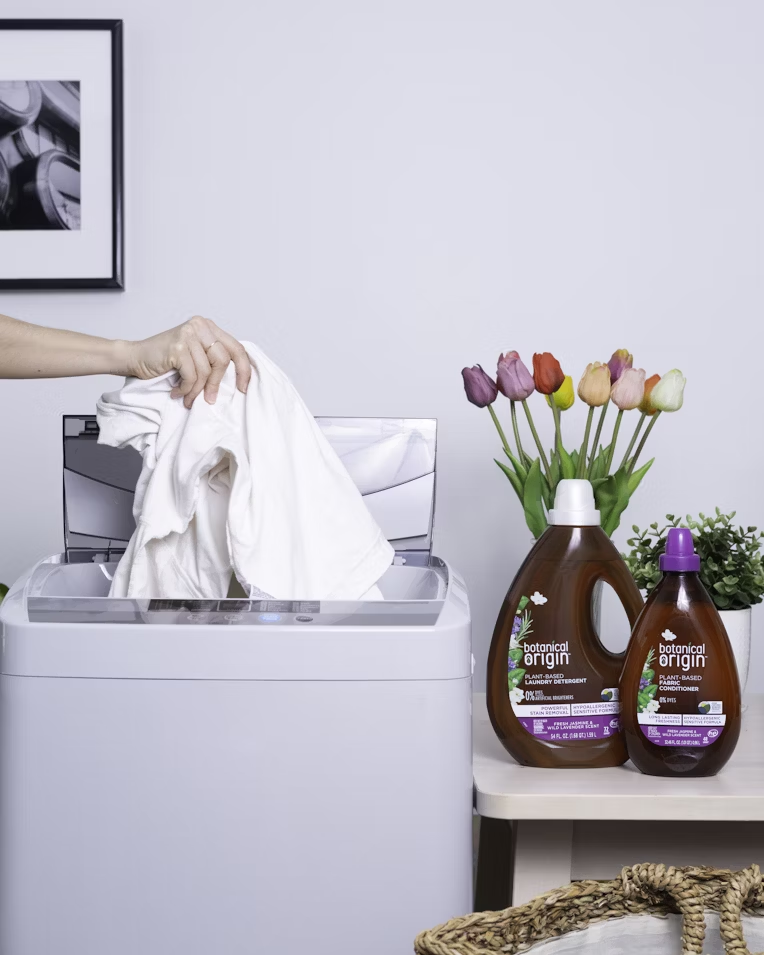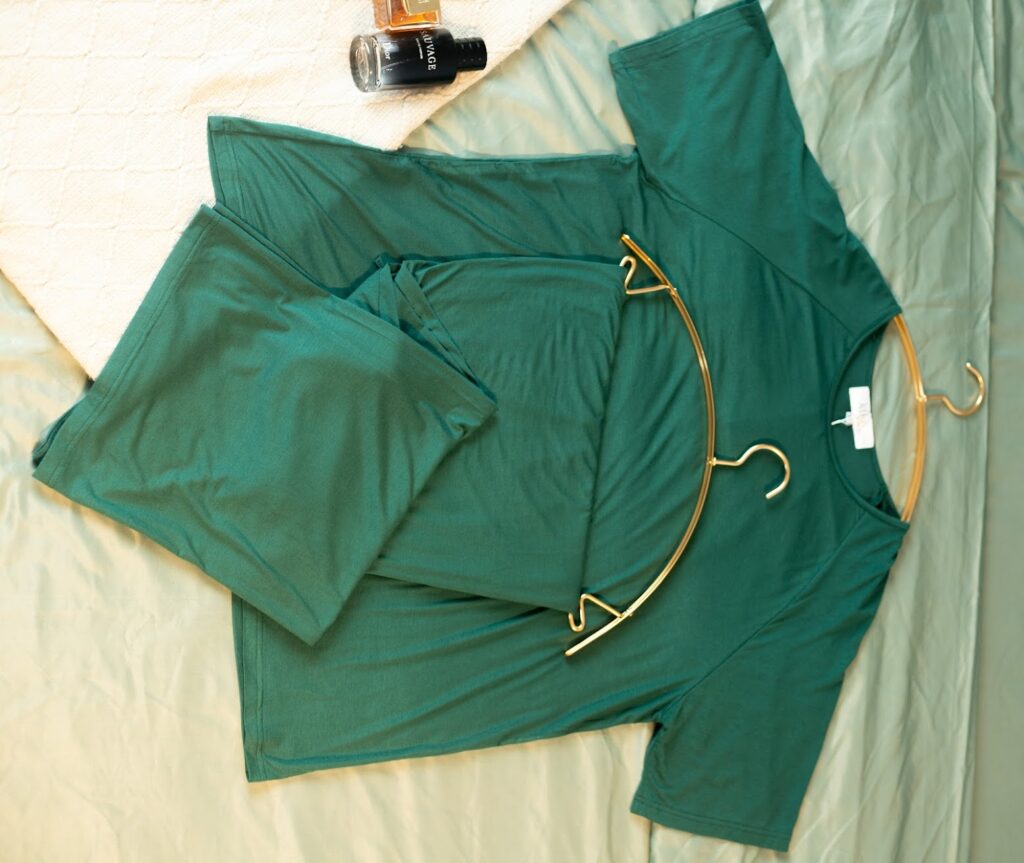After a long day inside the heat, all you want is to slip into your sleepwear and finally rest.
But sometimes what should feel soft and soothing feels scratchy and stiff instead. This is a common problem.
In Nigeria, where most people wash clothes frequently because of sweat, dust, and heat, fabrics often lose their softness too quickly.
It is frustrating.
You buy nice cotton pyjamas, a silk nightgown, or even a simple t-shirt you love to sleep in, only for it to turn rough after a few washes.
Suddenly, the very clothes meant to bring comfort end up making your nights less restful.
The good news is that it does not have to be this way.
With the right washing habits and simple home hacks, you can keep your sleepwear soft and comfortable for a long time.
In this article, I will share five practical tips that will help you care for your sleepwear so it stays fresh and gentle on your skin, wash after wash.
Tip 1: Choose the Right Detergent From the Start

The first mistake many of us make is with detergent (me included).
Most popular Nigerian detergents are made to fight tough stains on clothes that get really dirty, like school uniforms or work clothes. They are powerful, but they are also harsh.
When used regularly on delicate fabrics like cotton, rayon, or silk, they weaken the fibers and strip away softness.
If your sleepwear always feels rough after washing, your detergent is likely the culprit.
The solution is to use something gentler. Mild liquid detergents are a better choice. Even a small amount of diluted dishwashing liquid, like Morning Fresh, can be less damaging compared to strong powders.
Baby detergents are another option. They are designed to be soft on sensitive skin, which makes them soft on fabrics too.
If you cannot afford to buy a separate detergent for sleepwear, you can still adjust.
Simply reduce the quantity of powder you use and make sure it is well dissolved in water before soaking your clothes.
Undissolved detergent grains rub against fabric like sandpaper, leaving clothes feeling hard.
For a more traditional option, some people use black soap. If you do, make sure it is not too concentrated.
Your choice of detergent matters because it sets the foundation. A gentle wash means your sleepwear starts soft and stays that way longer.
Tip 2: Avoid Over-Washing With Hot Water
Many Nigerians grew up with the belief that hot water makes clothes cleaner. For whites and very dirty items, people boil water before washing.
While this may kill germs, it also damages delicate fabrics. Heat breaks down fibers, making them stiff, weak, and sometimes even shrunken.
For sleepwear, hot water is unnecessary. These clothes are not usually exposed to mud or grease; they only carry sweat and skin oils from the night.
Cool or lukewarm water is enough to wash them properly. If there is a stain, it is better to treat just the stained spot with soap instead of soaking the entire outfit in hot water.
Another benefit of avoiding hot water is that it saves fuel, gas, or electricity. With the rising cost of energy, there is no reason to waste resources boiling water for sleepwear.
Washing with cool water is not only gentler on fabrics but also gentler on your pocket.
Tip 3: Add Natural Fabric Softeners
Fabric softeners sold in stores can be helpful, but they are often expensive and sometimes not easy to find.
The good news is that there are natural and affordable alternatives that can be used instead.
- White vinegar: Adding a small cup of vinegar to your final rinse helps remove leftover detergent from the fabric. Soap residue is one of the main reasons clothes feel stiff. Vinegar clears it out and restores softness. Do not worry, the smell fades as the clothes dry.
- Baking soda: Another cheap and common option. Adding a spoonful to rinse water keeps fabrics soft and fresh. It also helps remove odor caused by sweat or damp storage.
- Aloe vera water: This is less common but very effective. Aloe vera gel mixed with water creates a natural fabric conditioner. Many Nigerians already grow aloe at home for skin or hair. The same plant can make your clothes smoother to the touch.
These softeners are easy to use. Just add them to your final rinse water and leave the fabric to soak for a few minutes before drying.
Over time, you will notice your sleepwear feeling lighter and gentler.
Tip 4: Handle Sleepwear Gently During Washing
How you wash matters just as much as what you wash with.
Many people scrub sleepwear like they scrub jeans or school uniforms. This is not necessary.
Sleepwear fabrics are lighter and softer. Rough scrubbing only pulls out the threads and makes them look worn out too quickly.
Here are better ways to handle them:
- Always turn your sleepwear inside out before washing. This protects the outer surface from friction.
- Avoid using hard brushes. Instead, use your hands or a soft sponge.
- Do not wring too tightly. Twisting fabric with force stretches the fibers and weakens them. Gently press water out instead.
In Nigeria, where handwashing is more common than machine washing, these small habits make a big difference.
Machine users should also choose the gentle or delicate cycle for sleepwear. With the right handling, your clothes will stay soft and last longer.
Tip 5: Dry and Store Properly
The Nigerian sun can be hot and unforgiving sometimes.
While it dries clothes quickly, it can also bake fabric fibers until they become stiff.
Direct sunlight fades colors, removes softness, and even weakens elastic bands on waistlines.
Instead of leaving sleepwear under the blazing sun, dry it in shaded areas with good airflow.
A veranda, balcony, or clothesline under a tree works better.
The clothes will still dry but without losing their quality. If you must use direct sunlight, remove them as soon as they are dry instead of leaving them for hours.
Storage also plays a role in keeping clothes soft.
Always ensure your sleepwear is completely dry before folding. Damp clothes grow mold and smell bad. Store them in cool, dry places, away from moisture.
You can place sachets of camphor or even dried orange peels in your wardrobe to prevent damp smells and insects.
When folding, avoid hanging stretchy fabrics as they lose their shape. Fold them neatly to keep the fibers intact.
Proper drying and storage are often ignored, but they are the final steps that keep sleepwear soft until the next wash.
Common Mistakes Nigerians Make With Sleepwear Care

Even with the best intentions, many of us still make small mistakes that ruin our clothes.
Here are a few common ones:
- Using too much detergent: More soap does not mean cleaner clothes. It only leaves residue that makes the fabric stiff.
- Leaving clothes soaked overnight: This weakens the fibers, especially when harsh detergents are involved, and creates a bad odor.
- Ironing with very high heat: Cotton and silk sleepwear can lose softness when exposed to excessive heat. Always iron at the lowest temperature that gets the job done.
- Ignoring rinse water: If rinse water is not clear, detergent is still in the fabric. This builds up over time and causes stiffness.
Avoiding these mistakes ensures that the effort you put into washing is not wasted.
Conclusion
Keeping sleepwear soft is not about expensive products. It is about small, smart changes in how you wash, rinse, dry, and store your clothes.
Choosing a gentle detergent, avoiding hot water, adding natural softeners, washing carefully, and drying in the right way all work together to preserve fabric quality.
Your sleep should feel like comfort, not punishment. Rough clothes take away from your rest, but soft sleepwear makes your nights more peaceful and your mornings fresher.
With these tips, you can make sure your sleepwear stays as cozy as the first day you bought it, no matter how many times you wash it.
Try one or two of these steps with your next wash, and you will see the difference.
Recommended Reading:
7 Sleepwear Tips for the Rainy Season in Nigeria
5 Ways to Stay Cool at Night Without AC in Dry Season
7 Ways Quality Sleepwear Helps You Relax After a Long Day
The Psychology Behind What You Wear to Bed




